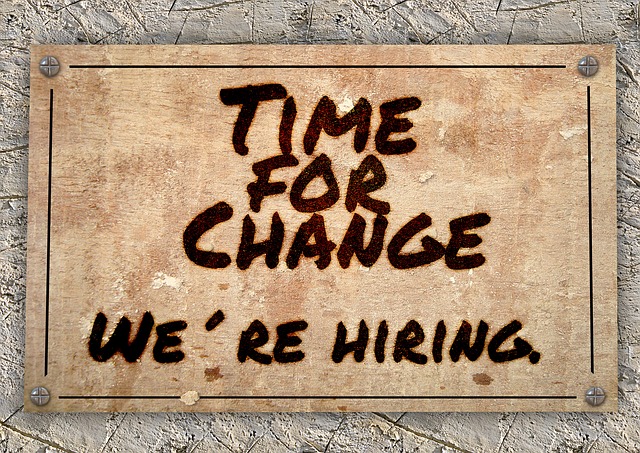Allied Progress
Had a bit of a back and forth with a former classmate and work colleague on Facebook about cultural appropriation. It’s one of the biggest issues I am struggling with on this journey of awareness, intersectionality, privilege, and equality. I’ve learned a lot over the last year, but there will always be room to grow.
The cast of this little mini drama:
Moi: (mostly) white, female
Former Colleage (also former classmate): white, male
Mutual Friend: self-identified “brown person”, female
What started the conversation was a tweet I saw and shared, along with the following comment:
For all the progress I feel I’ve made in my understanding of intersectional issues of privilege and bias, I still have a lot to learn. One of the big issues is cultural appropriation. There are some obvious things I get and some not obvious (to me) things I really, really struggle with. This tweet helps to put into perspective one of the issues I don’t yet grokk.
(There are 4 pictures at the link.)
“I don’t know why black women get upset about white women wearing braids/dreads, etc. it’s just hair” THIS IS WHY. pic.twitter.com/HGz54KZg2j
— Nefertitti (@RespectTheAfro_) August 17, 2015
Former Colleague: I can see where they are coming from. But my hair will dread pretty easilly if it’s uncomed for a week without a shower, especially when covered in fine alkaline dust at burning man. Vikings and Indian Hindus and other cultures have used dreads. So I’m not ready to call all non black people racists or cultural appropriator for have a tangled hair style. Just shitty that in 2015 this is even an issue.
Moi: Not really the point. This is about awareness of iniquity, not about “my hair’s just like that.”
Mutual Friend: Trust me. Black people can tell the difference between bed head/knots and White Dreads.
FC: My point is “dreads” are “natural” for some people’s hair who are not of modern African origin. Perhaps it’s just my white blindness/ignorance, but I don’t think condemning white hippies with dreads is helpful because they may have some unfair privelage [sic] to get away with having dreads when a black person wouldn’t get the job. The fundimental [sic] difference/issue there is that employer is a bigot. Not that the hippie is a cultural appropriator.
Am I just not “getting it”?
Moi: I’m not sure I can be as articulate as I’d like on this, as I am still at the steep part of the learning curve, but I’ll try.
Basically, even if an individual employer is a bigot to both blacks and whites with a particular hair style, black people are most definitely more impacted by this bias. It’s why #alllivesmatter is b.s. and essentially detracts from the unfairness and imbalance that necessitated #blacklivesmatter. (And why “feminism” is not called “humanism”, despite being about equality.) As Matt McGorry stated so eloquently on Twitter:
#BlackLivesMatter doesn’t mean other lives don’t. Like people who say “Save The Rainforests” aren’t saying “Fuck All Other Types of Forests”
— Matt McGorry (@MattMcGorry) July 18, 2015
Moi (cont’d.): That’s one point. Another point is that terms like “professional” and “businesslike” are decidedly white-centric, as natural white hair fits these parameters, but natural black hair does not. It practically requires black people to get their hair straightened or otherwise styled in a way that fits with white standards and norms. It places black people at a social and financial disadvantage when the dominant power is white. So when businesses and organisations declare a dress code that says braids and dreads are not acceptable, it is essentially a racist statement.
As for cultural appropriation, well, like blackface, hip hop, fashion, etc. etc., white people can come visit the black playground but then leave and go back to privilege-land. They get to play dress up, but experience none of the consequences of actually being black – getting followed around department stores, having fewer employment opportunities for having a “black sounding” name, or any of the myriad of examples of their lives being in danger during routine traffic stops and other police interactions (some of which would not even have been initiated had they been white). So… yeah, white people can have braids or dreads, but at this point in America’s development, it’s kind of a middle finger to those who suffer because it really IS a part of their culture. I hope we grow past it, and soon, but for now it’s a line that is best acknowledged and respected.
I hope that helps.
FC: White hippie dreads are not even close to black face. Yes, certainly there is white privilege at play here. But I also don’t see it as a middle finger. That is an overt and intentionaly negative statement. Wearing dreads is a statement of, “Dreads are beautiful, I want hair like that.” At some point insisting that some hair styles should only be for this race and that hair style I’d only for that race”, is just more division of people who could/should be allied. Cultural isolationism. Sorry, just my white male privelaged [sic] opinon [sic].
I just see this as in the same vein as attacking Bernie Sanders while leaving Trump and that crowd alone. Missing the target, the root of racism and getting far off track. Pick your battles for crying out loud.
Moi: I think you’ve really missed the target here. So, yes, it is your white, male privilege speaking.
I think you’ve also missed the part where the Bernie Sanders campaign has now gotten vastly more aware of minority issues and is speaking out about them. It’s possible that the activists – rightly – identified him as a soft target. That is to say, he was willing to listen, while throwing their might at Chump and Co. would be a less efficient use of energy. It was a wise move, from a Sun Tzu perspective.
FC: “White people should never play Jazz.” “White people should never have co-opted rock and roll.” Yes, there was very unfair privilage at play there. White guys got rich by copying black artists. Its very valid and understandable black artists and fans were upset by that. But in the end we’re all a better more integrated country that those cultures mixed.
For now, that’s where the conversation has stopped. Mutual Friend had a nice, long reply typed up, but her wifi ate it. I had hoped she would type it out again. She said she meant to but, y’know, life. Also, it’s not her job to educate. It’s our job as white people to seek out the knowledge ourselves and teach it to other white people.



